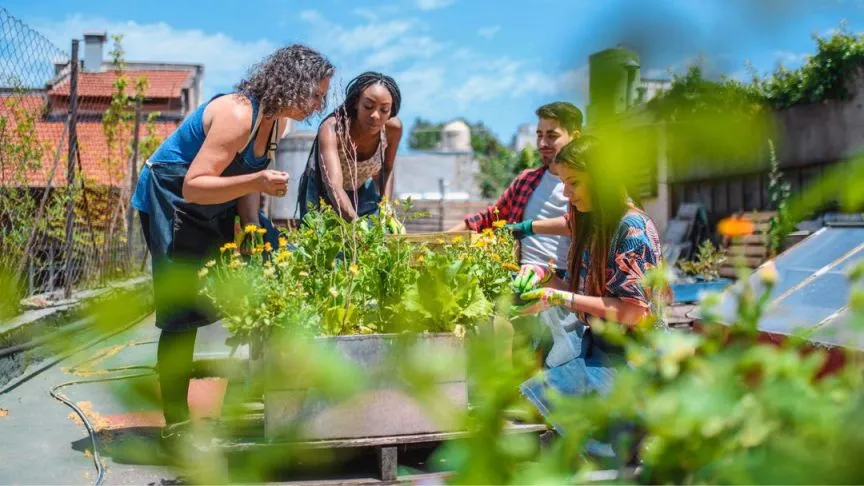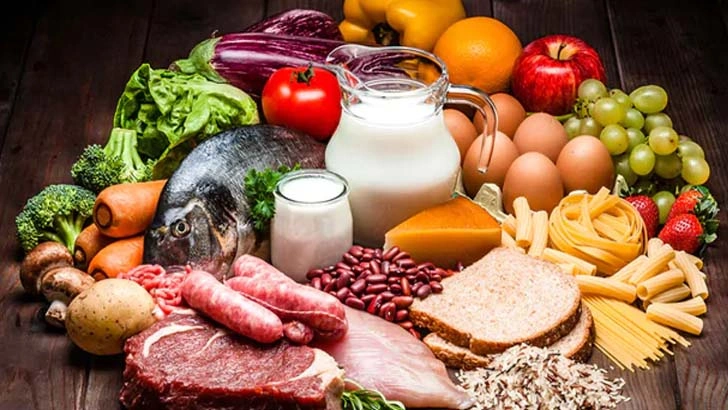Why I Don’t Live Like the Sky is Falling
“I initially didn’t listen to your podcast because I assumed it was going to be full of conspiracy theories like all the other shows. However, I’m glad I was wrong!” It turns out, it covers practical topics that are genuinely useful.
Homestead Preparedness for a Resilient Lifestyle
This comment showed up in my inbox last week. and it got me thinking about something that’s been bothering me for a while: the homesteading world has developed a serious case of doom-and-gloom syndrome.
Don’t get me wrong—I understand the appeal of catastrophic thinking. When you start learning about industrial agriculture, processed food systems, economic instability, and environmental challenges, it’s natural to feel like everything is falling apart. You feel like we’re all doomed.
And while I think it’s smart to be prepared for emergencies, I also think we need to be careful. We should avoid letting fear drive all our decisions.
Here’s the thing about living like the sky is falling: it’s exhausting, it’s often based on incomplete information, and it can prevent you. It can prevent you from actually enjoying the life you’re trying to protect.
Three Concepts That Trick Our Brains
I’ve spent a lot of time thinking about why smart, capable people get caught up in catastrophic thinking. I think it comes down to three psychological concepts. These concepts mess with our ability to assess risk accurately.
Confirmation Bias:
This is our tendency to seek out information that confirms what we already believe while ignoring information that contradicts it. If you believe the economy is about to collapse, you’ll notice every negative economic indicator while dismissing positive ones.
The internet makes this worse because algorithms feed us more of what we’ve already shown interest in.
Once you start reading about food system vulnerabilities, social media will show you more content about these vulnerabilities. Soon, your entire information diet consists of reasons to be worried about food security. This makes the problem seem much more urgent and widespread than it actually is.
Occam’s Razor Principle:
This principle suggests that the simplest explanation is usually the correct one. But when we’re scared, we often ignore simple explanations in favor of complex conspiracy theories.
Sometimes bad things happen not because of elaborate plots, but because people make mistakes. Systems are imperfect and life is unpredictable.
The simple explanation for supply chain disruptions might be that global logistics are complicated and vulnerable to disruption. The complex explanation involves deliberate manipulation by shadowy forces trying to control the population.
Most of the time, the simple explanation is correct.
Baader-Meinhof Phenomenon:
This is when you learn about something new and then start noticing it everywhere. It’s named after a person who heard about the Baader-Meinhof group and then started seeing references to it constantly.
Once you become aware of a potential threat, you start seeing evidence of that threat everywhere. This occurs even when its frequency hasn’t actually increased.
If you become convinced that food shortages are coming, you’ll notice every empty shelf at the grocery store. You’ll notice every supply chain hiccup, every weather event that might affect crops. These things were happening before you were aware of them, but now they seem significant and connected.
Understanding these psychological biases doesn’t mean dismissing all concerns about real problems. Climate change is real. Supply chains are vulnerable, and economic systems have problems. But it does mean being more careful about how we process information. We should make decisions based on that information carefully.
The problem with living in permanent crisis mode is that it makes it almost impossible to think clearly. It affects how we think about actual risks and appropriate responses. When everything feels like an emergency, you can’t prioritize effectively. You can’t make rational decisions about where to focus your energy.
Fear is a terrible decision-making tool.
I think there’s a difference between being prepared and being paranoid. Being prepared means having some extra food stored, knowing basic skills, maintaining emergency supplies, and building resilience into your lifestyle.
Being paranoid means organizing your entire life around worst-case scenarios that may never happen.
Here’s my approach to preparedness: I prepare for likely problems, not for apocalyptic scenarios.
Power outages happen regularly where we live, so we have backup heat sources and stored water. Economic downturns are cyclical, so we avoid debt and maintain diverse income streams. Supply chain disruptions occur periodically, so we keep extra food on hand and know how to grow our own.
These are reasonable preparations for realistic scenarios.
But I don’t organize my life around the possibility that civilization might collapse. This is because there’s no evidence that’s likely to happen, and living like it might is more harmful than helpful.

This doesn’t mean being naive about real problems or failing to take reasonable precautions. It means maintaining perspective, thinking critically about information sources, and remembering that humans are remarkably adaptable and resourceful.
Throughout history, people have faced enormous challenges and found ways to thrive.
Every generation thinks the problems they’re facing are unprecedented and potentially civilization-ending. Sometimes they’re right, but more often they’re wrong. Most of the catastrophes that people worry about don’t happen, and the problems that do occur are usually solvable.
Humans are really good at figuring things out when we need to.
So while I think it’s smart to learn traditional skills, grow some food, and maintain reasonable emergency supplies, I don’t think it’s helpful to live like the world is ending.
Instead, I choose to live like the world is full of possibilities. I do this while being sensibly prepared for the challenges that might come.
Because at the end of the day, the best preparation for an uncertain future is developing confidence in your ability. It’s about having the ability to adapt to whatever happens.
Living with hope and reasonable preparation,
-Nichole
P.S. This doesn’t mean ignoring real problems or avoiding all discussion of potential challenges. It means approaching these topics with critical thinking. You should use balanced information sources, and focus on realistic solutions rather than apocalyptic scenarios.


Leave a Reply